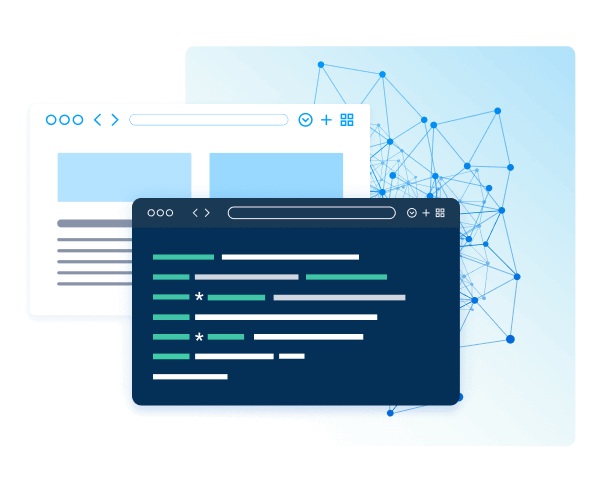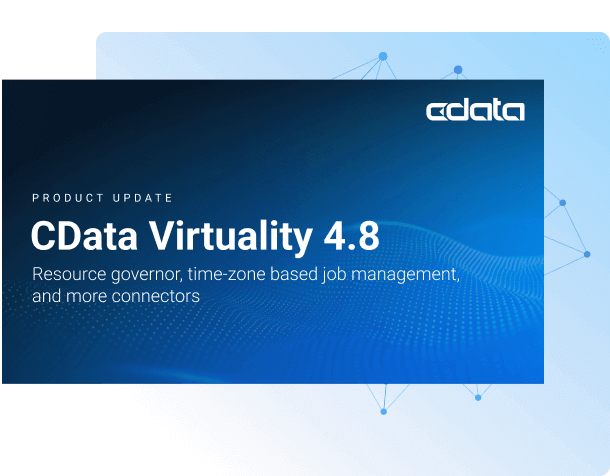Discover how a bimodal integration strategy can address the major data management challenges facing your organization today.
Get the Report →Natively Connect to Bitbucket Data in PHP
The CData ODBC driver for Bitbucket enables you to create PHP applications with connectivity to Bitbucket data. Leverage the native support for ODBC in PHP.
Drop the CData ODBC Driver for Bitbucket into your LAMP or WAMP stack to build Bitbucket-connected Web applications. This article shows how to use PHP's ODBC built-in functions to connect to Bitbucket data, execute queries, and output the results.
Configure a DSN
If you have not already, first specify connection properties in an ODBC DSN (data source name). This is the last step of the driver installation. You can use the Microsoft ODBC Data Source Administrator to create and configure ODBC DSNs.
For most queries, you must set the Workspace. The only exception to this is the Workspaces table, which does not require this property to be set, as querying it provides a list of workspace slugs that can be used to set Workspace. To query this table, you must set Schema to 'Information' and execute the query SELECT * FROM Workspaces>.
Setting Schema to 'Information' displays general information. To connect to Bitbucket, set these parameters:
- Schema: To show general information about a workspace, such as its users, repositories, and projects, set this to Information. Otherwise, set this to the schema of the repository or project you are querying. To get a full set of available schemas, query the sys_schemas table.
- Workspace: Required if you are not querying the Workspaces table. This property is not required for querying the Workspaces table, as that query only returns a list of workspace slugs that can be used to set Workspace.
Authenticating to Bitbucket
Bitbucket supports OAuth authentication only. To enable this authentication from all OAuth flows, you must create a custom OAuth application, and set AuthScheme to OAuth.
Be sure to review the Help documentation for the required connection properties for you specific authentication needs (desktop applications, web applications, and headless machines).
Creating a custom OAuth application
From your Bitbucket account:
- Go to Settings (the gear icon) and select Workspace Settings.
- In the Apps and Features section, select OAuth Consumers.
- Click Add Consumer.
- Enter a name and description for your custom application.
- Set the callback URL:
- For desktop applications and headless machines, use http://localhost:33333 or another port number of your choice. The URI you set here becomes the CallbackURL property.
- For web applications, set the callback URL to a trusted redirect URL. This URL is the web location the user returns to with the token that verifies that your application has been granted access.
- If you plan to use client credentials to authenticate, you must select This is a private consumer. In the driver, you must set AuthScheme to client.
- Select which permissions to give your OAuth application. These determine what data you can read and write with it.
- To save the new custom application, click Save.
- After the application has been saved, you can select it to view its settings. The application's Key and Secret are displayed. Record these for future use. You will use the Key to set the OAuthClientId and the Secret to set the OAuthClientSecret.
Establish a Connection
Open the connection to Bitbucket by calling the odbc_connect or odbc_pconnect methods. To close connections, use odbc_close or odbc_close_all.
$conn = odbc_connect("CData ODBC Bitbucket Source","user","password");
Connections opened with odbc_connect are closed when the script ends. Connections opened with the odbc_pconnect method are still open after the script ends. This enables other scripts to share that connection when they connect with the same credentials. By sharing connections among your scripts, you can save system resources, and queries execute faster.
$conn = odbc_pconnect("CData ODBC Bitbucket Source","user","password");
...
odbc_close($conn); //persistent connection must be closed explicitly
Create Prepared Statements
Create prepared statements and parameterized queries with the odbc_prepare function.
$query = odbc_prepare($conn, "SELECT * FROM Issues WHERE Id = ?");
Execute Queries
Execute prepared statements with odbc_execute.
$conn = odbc_connect("CData ODBC Bitbucket Source","user","password");
$query = odbc_prepare($conn, "SELECT * FROM Issues WHERE Id = ?");
$success = odbc_execute($query, array('1'));
Execute nonparameterized queries with odbc_exec.
$conn = odbc_connect("CData ODBC Bitbucket Source","user","password");
$query = odbc_exec($conn, "SELECT Title, ContentRaw FROM Issues WHERE Id = '1'");
Process Results
Access a row in the result set as an array with the odbc_fetch_array function.
$conn = odbc_connect("CData ODBC Bitbucket data Source","user","password");
$query = odbc_exec($conn, "SELECT Title, ContentRaw FROM Issues WHERE Id = '1'");
while($row = odbc_fetch_array($query)){
echo $row["Title"] . "\n";
}
Display the result set in an HTML table with the odbc_result_all function.
$conn = odbc_connect("CData ODBC Bitbucket data Source","user","password");
$query = odbc_prepare($conn, "SELECT * FROM Issues WHERE Id = ?");
$success = odbc_execute($query, array('1'));
if($success)
odbc_result_all($query);
More Example Queries
You will find complete information on the driver's supported SQL in the help documentation. The code examples above are Bitbucket-specific adaptations of the PHP community documentation for all ODBC functions.





